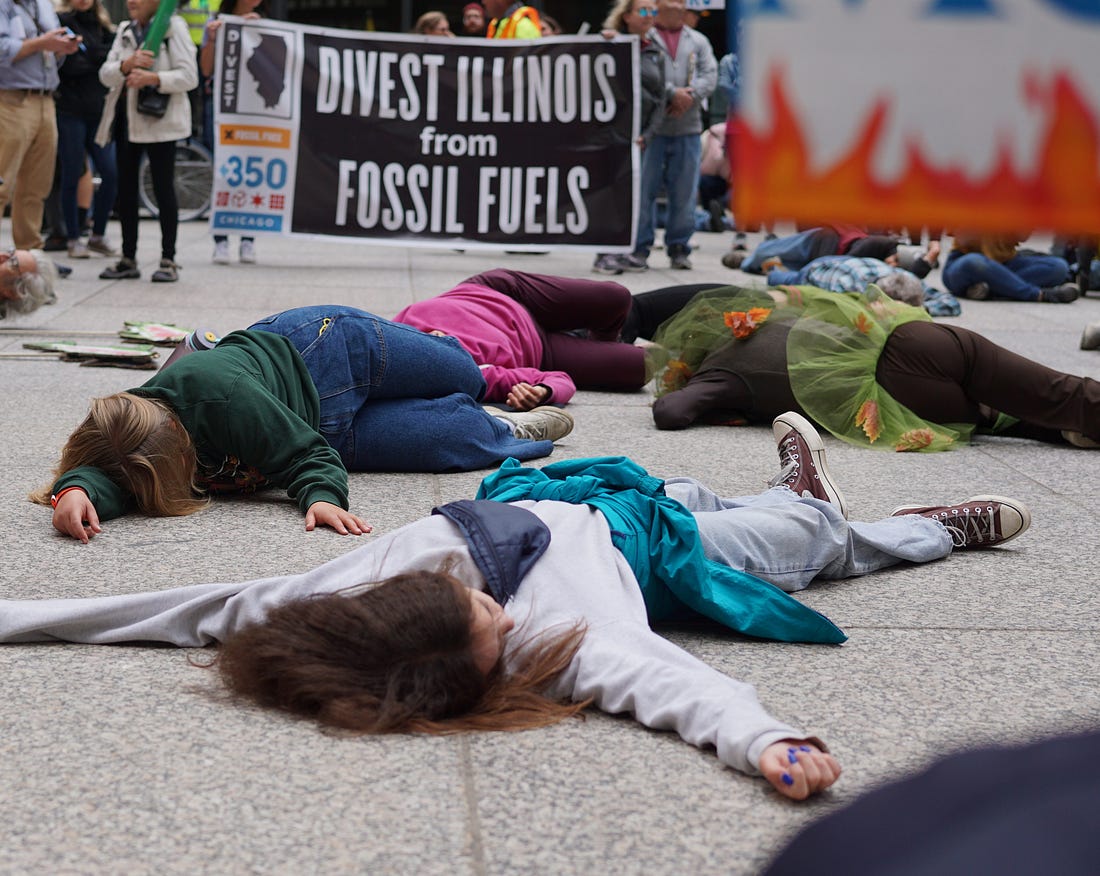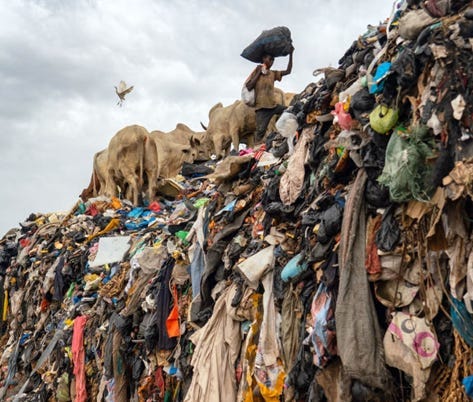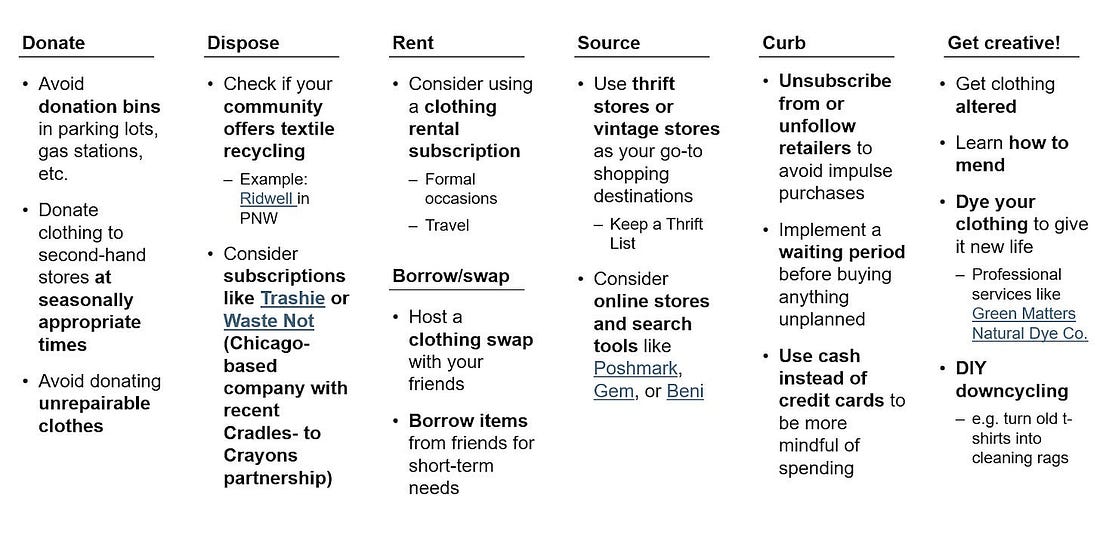|
 |
350 CHICAGO
Say 'Hands Off our Planet!' for Earth Month
Earth Month is jam-packed with ways you can make a difference. Join the national 'Hands Off!' Day of Action, donate, sign a petition, and read how choices on clothes and couches can affect the climate
In This Issue
350 Chicago’s Earth Month Fundraiser!
Action Center (new!)
Online Petition: Climate Safe Pensions
Online Petition: Utility Transparency Act
Events
April 5: ‘Hands Off!’ Day of Action
April 9-15: Sustainability Leadership Training Food & Agriculture Pilot
April 14: 350 Chicago General Meeting
April 16: Crafting Your Climate Message
April 22-28: One Earth Film Festival & Earth Day Action Fair
April 24: Support Climate Education at Sketchbook Brewery
Chicago Climate Connect April Event Schedule
In Brief
Evanston Climate Win: Healthy Buildings Ordinance Passes
Energy Transfer v. Greenpeace: Right to Protest Under Attack
Right to Sue Oil Giants Preserved at US Supreme Court
Spring Energy Efficiency Tips from Citizens Utility Board
Illinois Solar for All: Bright Neighborhoods Program
Main Articles
Unraveling the Story of Clothing Waste
I’m on my third sofa in four years and that’s bad for the climate
350 Chicago’s Earth Month Fundraiser!
Happy Earth Month!
Over the last few weeks, the Trump administration has frozen federal funding for climate initiatives and signed multiple executive orders with far-reaching consequences for the environment. Yet we can still take action at the state and local level. 350 Chicago has ramped up the fight to divest Illinois from fossil fuels, fight utility corruption, and advocate for clean energy in Illinois. You can help us keep up the momentum with a gift today. Any amount is appreciated.
Will you help us fight the climate crisis in Illinois by providing us a gift today to reach our $10,000 goal?
And this is no April’s Fool’s joke - for every $25 donation you make between now and April 29th, you’ll be entered into a raffle to earn a prize.
One entry for every $25 donated. (So if you donate $100, you’ll receive 4 entries!)
Winners will be selected at random after the close of the fundraiser.
The first winner will receive an Earth Month gift set: a Patagonia backpack + 350 Chicago hoodie (organic cotton, sustainably produced) + 350 Chicago T-shirt (organic cotton, sustainably produced)
5 additional winners will receive a 350 Chicago T-shirt (organic cotton, sustainably produced)
With gratitude,
350 Chicago
Action Center
Online Petition: Climate Safe Pensions
Investments in fossil fuels are driving climate change, and they are becoming increasingly risky with significant financial liabilities. The state of Illinois can be both a climate leader and protect the health of its pension funds by divesting from fossil fuels. Climate Safe Pensions Illinois, a coalition whose members include 350 Chicago, Third Act Illinois, and The Climate Reality Project Chicago Metro Chapter, is, therefore, asking the State of Illinois to protect pension funds and provide more transparency to the holders.
Learn more and sign here: Climate Safe Pensions Petition!
Online Petition: Utility Transparency Act
Over the years, utilities have made it acceptable to recover some of their costs from ratepayers that should be charged to their shareholders! They routinely charge ratepayers for the cost of a range of lobbying activities without the ratepayers knowledge.
Learn more and sign here: Utility Transparency Petition!
Events
Hands Off! Day of Action
Saturday, April 5, 12:00 start
Daley Plaza, 50 W. Washington St, Chicago, IL 60602
Come join us and make your voice heard on the streets of Chicago! 350 Chicago will be at Daley Plaza (by the fountain) on Saturday, April 5th, along with a wide coalition of other organizations for the ‘Hands Off!’ National Day of Action. Let the Trump administration know we will not sit quietly as they gut the EPA, fill cabinet positions with fossil fuel cronies, and roll back decades of progress combating climate change.
For more details on the Trump administration’s abysmal record on climate so far, see our February & March newsletters.
350 Chicago General Meeting
Monday, April 14, 6:30pm - 7:30pm
via Zoom
Join 350 Chicago for our General Meeting! During the meeting, we will provide campaign updates and discuss the work 350 Chicago is doing in Chicago and Illinois to help preserve a livable planet. We will also provide information about ways to volunteer and get involved with 350 Chicago. Please email [email protected] to attend the General Meeting, we will send you the zoom link.
Crafting Your Climate Message
via Chicago Environmentalists: Come join us at The Eco Cafe for a fun and informative event where you can learn how to effectively communicate about climate change. Kim Moldofsky, Bold Belief Builder at Scrappy Affirmations, will share tips on best practices for climate communication and help you craft your unique environmental message.
One Earth Film Festival & Earth Day Action Fair
April 22-28
350 Chicago will be tabling on Sunday, April 27th, 11:30am - 1:30pm at Chicago Cultural Center GAR Rotunda, 78 E Washington St, Chicago, IL 60602
350 Chicago will be tabling on April 27 from 11:30am - 1:30pm (before the screening of The Grab) at the Earth Day Action Fair during the film festival. We will be collecting signatures for our campaign to divest the Illinois Pension Fund from fossil fuels. These tabling days are great opportunities to learn about us and write a postcard we will hand deliver to legislators in Springfield.
More on the festival from One Earth: Join us for the 14th annual One Earth Film Festival, the Midwest’s premier environmental film festival, happening April 22-28, 2025. Launching on the 55th anniversary of Earth Day, the festival offers a week of inspiring, award-winning, acclaimed, activating environmental and climate justice films. Each event features rich, facilitated discussions with experts, advocates, and activists–equipping you with actionable steps to combat climate change and environmental injustice.
Support Climate Education at Sketchbook Brewery
April 24, 7:00pm - 9:00pm
Sketchbook Brewery, 4901 Main St., Skokie, IL
RSVP HERE: Tickets $40 (Teachers $20, Students free), includes a drink and dessert.
via Climate Education for Illinois: We're hosting a fundraising event on Thursday, April 24th from 7-9 p.m. at Sketchbook Brewery in Skokie in order to rally our community and accelerate our goal of youth empowerment through the creation of the Illinois Climate Education Hub by Subject to Climate (StC). The evening will feature a chance to win experience-based prizes, games, and plenty of networking opportunities.
Sustainability Leadership Training Food & Agriculture Pilot
via Chicago Conservation Core (C3) and the Chicago Nature Museum:
This spring, we are piloting a new version of our Sustainability Leadership Training. We will be focusing on the sustainability of our local food systems. We’ll examine critical issues like food access, sustainable agriculture, and how to lower the greenhouse gas emissions associated with our food. We’ll also explore how we all can support Chicago’s growing urban agriculture and food rescue initiatives. This training is open to all - We encourage our C3 Leaders of past cohorts to join us for fresh new content, and invite new community members to join for the very first time. To participate in the training course, you must be an adult resident of the Chicago region, attend one of these information sessions (or watch one online), and submit an application for the training. Information Sessions will take place on:
Wednesday, April 9, 12:00-12:40pm (zoom)
Thursday, April 10, 6:00-6:40pm (in person at The Nature Museum, during C3 Happy Hour)
Monday, April 14, 6:00-6:40pm (zoom)
Tuesday, April 15, 12:00-12:40pm (zoom)
After April 9, a recording of a session will be available on the C3 website.
Chicago Climate Connect April Event Schedule
April 5, 4:00pm - 6:30pm: Community Event - Impact Happy Hour: City of Chicago Meeting Global Shapers
April 8, 5:30pm - 7:30pm: Community Event - Clean Leap Presents: Cleantech & Sustainability: Exploring Policy, Innovation, and Investment
April 9, 5:30pm - 7:30pm: Partner Event - Chicago Climate Connect & German American Chamber of Commerce (GACC): Adapting Water Systems for a Changing Climate
April 22, 6:00pm - 8:00pm: Chicago Climate Connect @ Impact House w/ Current
Chicago Climate Connect is hosting a number of events in April- you can learn more about their events and RSVP HERE.
via Chicago Climate Connect: Chicago Climate Connect started early 2023 and has become the largest recurring climate-focused event in Chicago. Our mission is to bring together people from different climate-focused organizations to make connections and promote climate work in Chicago. Each month, we bring together 75-100 people for networking and climate related programming featuring diverse speakers.
In Brief
Evanston Climate Win: Healthy Buildings Ordinance Passes
Congratulations to Evanston residents on their climate win! The Evanston City Council Voted 7-1 to pass the Healthy Buildings Ordinance (HBO). This was possible thanks to the hard work of Evanstonians who rallied for climate such as our ally organizations Climate Action Evanston, Fossil Free Northwestern, and Sunrise E-Town. The HBO ordinance requires the city’s largest buildings to eliminate all fossil fuels and use 100% renewable electricity by 2050. (see Climate Action Evanston’s announcement and more from the Tribune and Canary Media)
Energy Transfer v. Greenpeace: Right to Protest Under Attack
In a blow against indigenous rights, free speech, the right to protest, and the climate movement generally, a North Dakota jury delivered a startling $660 million verdict against Greenpeace for defamation against Energy Transfer, the pipeline company at issue in the Standing Rock protests. But this is the beginning, not the end of the fight for Greenpeace, who is vowing to appeal the decision and continue fighting.
More from the New York Times, and attorney Steven Donziger.
Right to Sue Oil Giants Preserved at US Supreme Court
In better legal news, the US Supreme Court declined to hear an argument which could have blocked the ability for states to bring lawsuits against fossil fuel companies. This argument, brought by the attorneys general from 19 Republican States, attempted to block lawsuits from Democratic led states against fossil fuel interests for “allegedly deceiving the public for decades about the effects of their greenhouse gas emissions.” Now that the US Supreme Court has rejected the argument, these cases can proceed. More from the New York Times.
Spring Energy Efficiency Tips from Citizens Utility Board
Looking to make some changes to your life to help lessen your climate impact and save some money on electricity costs? Check out these tips via the Citizens Utility Board: Jumpstart your spring cleaning with energy efficiency tips from CUB
Illinois Solar for All: Bright Neighborhoods Program
via Illinois Solar for All: The Illinois Solar for All: Bright Neighborhoods Program guarantees electricity bill savings for income-eligible homeowners in select Illinois communities, including some of Chicago’s West Side neighborhoods, Waukegan, and the Carbondale-Marion micropolitan area. This program supports Illinois’ renewable energy goals and expands solar energy to income-eligible and environmental justice communities.
Unraveling the Story of Clothing Waste
by Mary Baker
The clothing industry represents a huge source of global carbon emissions. Some reports estimate that the clothing industry could account for up to 10% of global CO2 emissions, and clothing demand isn’t forecasted to slow down any time soon. A huge portion of this clothing ends up as waste, and improving end of life treatment for clothes represents a huge opportunity for reducing carbon emissions as well as reducing industry waste. Low price points of companies like Shein, Temu, and H&M reflect a need for affordable threads, but the quality and ubiquity of their products often leads to overconsumption and a huge amount of waste.
Clothing into Waste
Cher from Clueless might not be surprised that the average American buys 53 items of clothing per year, but I like to think she'd be bummed that the average garment is only worn 7 to 10 times before being thrown away.
This constant churn is a shame because the clothing industry requires huge amounts of non-renewable energy, water, and natural resources, and often exploits workers. For example, synthetic fibers like polyester are derived from petroleum, and even natural fibers like cotton need enormous amounts of fertilizer and water to grow at such a massive scale. (Source: Textile Recycling and Recovery: An Eco-friendly Perspective on Textile and Garment Industries Challenges)
There's so much room for improvement in end of life treatment: globally, 75% of clothing waste is landfilled each year. The clothes we throw away or donate via donation bins and thrift stores are often landfilled or exported to developing countries. In theory, these products could be repaired and sold in local second hand markets. But the poor quality of fast fashion makes it hard for upcyclers to do their jobs effectively, often leaving no choice but to discard clothing in local landfills.
Clothing Recycling
About 25% of used clothing is reused or recycled, but this figure refers to open loop recycling, or “downcycling.” Downcycled clothes turn into other materials such as mattress stuffing or home insulation. This solution keeps material out of landfills, but it doesn't reduce demand for resources needed to create new clothes. Closed-loop recycling can turn old clothes into new, but is actually quite rare. Only 1% of discarded clothing ends up in closed-loop recycling systems, due to the complexity of sorting and rearranging different materials, labels, buttons, zippers, and dyes.
A proof of concept for sustainable textile recycling is the Renewcell recycling mill, built in Sweden in 2022. The goal of this mill is to recycle the equivalent of 1.4 billion t-shirts every year by 2030. It’s working towards this goal by making a biodegradable cellulose pulp they call Circulose, using old t-shirts and jeans as feedstock. To top it off, the company uses 100% renewable energy for its facility, using hydropower from a nearby river.
What Can You Do?
I don’t mean to suggest we bear all the blame. Multi-billion dollar corporations spend an incredible amount of money to make buying clothes as frictionless as possible. While clothing recycling still has a long way to go, solutions for giving your old outfits another life, like closed- and open-loop recycling, do exist.
Here are some strategies you could consider for shifting your relationship to shopping towards a less extractive model:
* This article was created based on Mary’s capstone project at the Clean Energy Leadership Institute (CELI) fellowship, which equips participants with the skills and knowledge for building an equitable, decarbonized, and resilient energy system.
* For those interested in learning more on the topic of clothing waste and fast fashion, this newsletter has previously discussed the topic here
I’m on my Third Sofa in Four Years and That’s Bad for the Climate
by Abby Schwartz
A month ago my husband began complaining of back problems caused by our sofa. This was our second sofa, and only a year and a half old. The first was from Ikea, and the second was from a discount store, and cost over twice the price of the Ikea sofa. As climate activists we hate wastefulness and wanted to invest in something that would last.
But there we were a year and a half later with the seat of the sofa so badly detached from the arm that it was resting on the floor. We arranged for the discount store to come repair the sofa, but shortly after it was “fixed” I heard a cracking sound and we were back to square one. The store refused to even look at it again.
Our next stop involved traveling over an hour to the Brown Elephant charity shop. Lo and behold they had a bunch of sofas, they were even having a sale on them! We secured ourselves a very comfortable sofa in near mint condition for $92.
Is the moral here that you too should just buy a used sofa? Well kind of. It may work in some instances, but it is not a long term solution for consumers as a whole.
The problem is that manufacturing standards for things like furniture are really low right now. According to Ashlee Piper, a sustainability expert quoted in architectural digest, “It’s usually new furniture that’s being tossed. It’s things like a chair that’s missing a leg or things with cosmetic damage to them. That’s because it’s just not built to last and there aren’t repair programs for it. It was intended to have a short lifespan.”
Long term we need everything, not just bespoke expensive pieces built to last. Over 12 million tons of furniture are thrown out every year and 80% of it ends up in landfills according to the EPA.
Like all climate issues there is a small amount you can do in terms of your consumption habits, but the real necessity is systemic change. Much of that change will have to be political- which will be an uphill battle right now, but it is not impossible.
Sources:
350 Chicago Newsletter is free today. But if you enjoyed this post, you can tell 350 Chicago Newsletter that their writing is valuable by pledging a future subscription. You won't be charged unless they enable payments.


